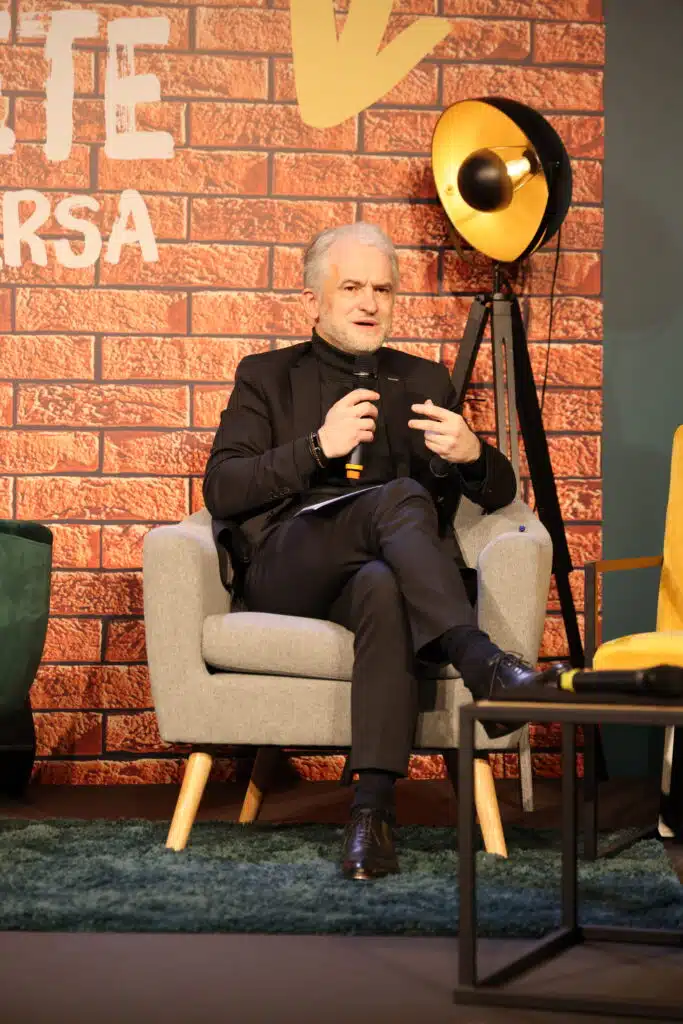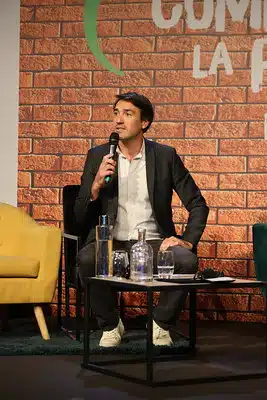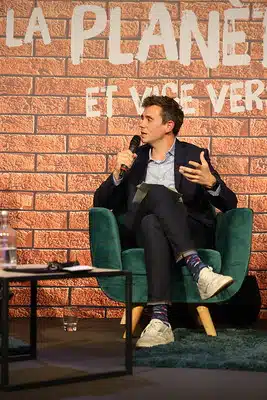Could uncertainty be the key for innovation and economic responsibility?
In order to truly transform the way we do business, we must place new governance models at the heart of the transition for a more responsible economy.
In this conversation, Katie Hill, the President Executive of B Lab Europe, interviews Vaugh Tan about his stance on innovation in times of uncertainty. Vaugh Tan is a Strategy Consultant and Professor at the London School of Management. He recently published his first book , which dives into the high-end culinary world to show how we can learn from culinary teams in order to better innovate and adapt to change.
On the necessity of being a free thinker
Vaugh Tan believes that when adopting a free-thinking mentality, we embrace the fact that there is no right route to follow. This allows us to solely depend on ourselves and therefore search for the best quality without wondering if we are on the right path or not.
If Vaugh Tan is able to think so freely, it is probably thanks to his “lack of discipline”. He claims that in such an uncertain world, the best solution is to take uncertain actions. Starting with small steps, even if we are not sure, always ends up having a crucial impact. It can either lead to innovation if the experiment works, or it can improve our confidence and encourage us to take an even bigger step towards uncertainty. As he said, “it is just like lifting at the gym, no one begins by lifting a 100 pounds”!
The professor also regrets that the current education system seems to prevent students from flourishing in situations of uncertainty. Getting the right answers is indeed not the only path to success. Sometimes, acknowledging and learning to cope with what we don’t know can actually help us to move forward.
What should the guiding principles for organisations and leadership be?
CEOs usually think that they must run their businesses in the most optimal way. However, to maximize a business’ organisation and profit, it must be tailored to its environment and resources. But when these external factors change, then the whole structure falls apart. Therefore, in times of uncertainty, leaders should intentionally become less optimal in ways that make them more resilient and adaptable. Businesses can decide to be more ethical by accepting to be more constrained: paying their employees and suppliers fairly, who will in return do everything they can to support the business if it faces difficulties.
In addition, having some constraints makes decisions easier. How can we choose when there is an infinity of possibilities? Constraints help us to take concrete actions, while ensuring the respect of ethical and economically responsible principles.
The current working framework is one with clear objectives, with goals that are set far in advance to be as profitable as possible. But in a situation of crisis, how can we forecast what will be achieved? We need to change how we think about business by forgetting the idea of reducing risks and maximizing profit. Instead, it is essential to focus on who the business serves, how we can work without sacrificing the welfare of everyone involved and on how everyone can act autonomously to cater for the business. Organisations should not be afraid to work in unconventional ways.
Recruiting new profiles, putting the emphasis on adaptability and responsibility
Since our environment is changing, especially with the Covid-19 crisis, jobs and roles descriptions inside a business are also reshaped. It is urgent to start hiring adaptable people, who are not afraid to take risks and initiatives. Just like jobs, the rules of the system are not set in stone: we just need to think differently about the structures. It is possible to impose a strategic shift by adapting to the current situation instead of staying stuck with rules that we tend to see as predetermined.
Generally, regulation can be set in two ways: either businesses decide on their own that they want to make a responsible change, or policy makers declare new norms. Vaughn Tan imagines a world where business leaders come up with new strategies that show that economic responsibility is an achievable goal and that it can even be fun. He observes these changes especially in the agricultural sector and in the culinary world, where farmers and chefs constantly innovate and look for new ways to be sustainable and respectful of the environment.
Going for a more responsible and respectful economic strategy is achievable, even more so when we are in highly uncertain situations, as they encourage innovation. Conventional organisations must be turned upside down to incorporate some uncertainty into their structure. From now on, what matters the most is creating a system of values based on adaptability, economic responsibility and innovation, which will lead to a complete change in the way we do business.
Jeanne Pavard



